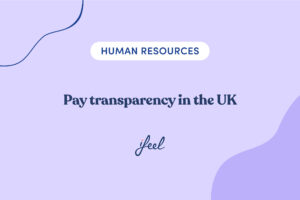Insomnia at work is one of the most consequential risks to the well-being of employees and their performance, hence the importance of preventing it by taking care of workers’ quality of life and the conditions in which they perform their duties.
We usually use the word “insomnia” to refer in a summarized way to any significant difficulty we have with our sleep. However, when talking about it in general and the consequences of insomnia at work in particular, it is necessary to include in this category the different types of difficulties that we humans can face during our sleeping behavior: challenges in falling asleep, early wake-ups, interrupted sleep, shallow sleep, etc.
Solving these types of problems is not easy. It requires a multidisciplinary approach to detect their physiological, psychological, or psychosocial causes to find the most appropriate method for each person in question.

Main consequences of insomnia at work
We have all experienced going to work at some point after a difficult night or, for various reasons, a poor night’s sleep.
Sometimes the cause is an intense worry that robs us of sleep. Sometimes it is a late night. Sometimes a noise in the street prevents us from falling asleep. Other times, it is simply that all the conditions seemed conducive to a good night’s sleep, and yet we have not managed to do so. Hasn’t this led to specific difficulties in performing our tasks at the office?
Imagine then the consequences that, on a sustained basis, insomnia can have on someone’s work, not to mention the pernicious influence it can have on their physical and psychological health.
The following are some of the main consequences of insomnia at work to show why it is so essential for anyone to get a good night’s sleep, why companies should pay some attention to the quality of their employees’ sleep, and the factors that can disrupt it.
1. Difficulty concentrating
To sleep is to rest and allow the brain to do the work it has to do in terms of processing the information it has received during the day, ordering it, categorizing it, and letting go of inputs considered irrelevant.
This gives us clarity during the day to be able to attend to our responsibilities when there are significant difficulties with sleep, our ability to sustain our attention on a task declines, which will affect the quality of our ability to retain and interpret information.
2. Lack of efficiency
Of course, you may have already noticed that one of the consequences of insomnia at work is difficulty concentrating. This will cause us to spend a lot of energy refocusing our attention, cause “silly” mistakes in our memory, and make our information processing more costly.
This slows us down in executing our tasks and forces us to review them more often than necessary to locate possible errors.
3. Irritability
Irritability and susceptibility can also be related to insomnia at work. It is true that when we have had little sleep for a pleasant reason, the next day, we tend to be tired but not exactly grumpy. However, when we have had a difficult night of little and insufficient sleep or anguish about not sleeping, the next day, we are impatient, vulnerable, and not precisely available to take good care of others.
4. Lack of energy
Of course. Earlier, we indicated that sleep serves the function of resting our minds and body. If we sleep poorly, we do not compensate for the fatigue and overload we are subjected to during our waking hours. Therefore, we will not be able to perform our tasks with the same quality as we would if we had had a peaceful and restful sleep.
5. Physical discomfort
In addition to feeling drained and not very refreshed, insomnia at work and outside of work can make us feel unwell: headache, anxiety, stiffness… It is predictable: sleep is repairing, healing, restoring. If we sleep poorly, we should not be surprised when we feel psychologically and physically unwell the next day.
6. Mood decline
In addition to irritability, one of the consequences of a lack of quality sleep on our emotions is that it puts us in a sadder than a cheerful state, downcast than hopeful, and sluggish than robust.
That is why taking care of our sleep habits and tackling insomnia problems as soon as possible is vital. If they are prolonged over time and worsen, they can significantly harm our psychological well-being.
Some good sleeping habits
When insomnia at work and in our life outside the office has become very intense, it is likely necessary to consult a specialist to help us redirect this situation.
However, on a preventive level, we must practice proper sleep habits to avoid possible difficulties with these critical health and performance needs.
-Avoid abusing stimulating substances (coffee, tea, chocolate, etc.), especially in the afternoon and evening.
-Maintain a regular sleep pattern and routine.
-Reduce or restrict the use of electronic devices in the hours before going to bed.
-Use the bed primarily for sleeping but not, for example, for work.
-Reduce the activity in the day’s final hours: orient our organism towards calmness.
-Make sure the bedroom is tidy, clean, suitable temperature, and without noises or lights that may hinder sleep.

Caring for emotional well-being in organizations
At ifeel, we work to help companies progress by committing to employee well-being. To achieve this, our team of psychologists, experts in well-being at work, has created an emotional well-being program for companies that brings relevant benefits to the entire team, including those responsible for Human Resources.
Do you have a role within your organization’s Human Resources department? We know these managers perform a job that significantly impacts the company’s results. That’s why, through our program, they can receive personalized, data-driven advice on improving the psychological well-being of their teams. Try our program now to see how it could help you.
This program offers all employees a complete mental health care service from which they can benefit differently depending on their needs. Those who wish can access an online therapy service with one of our psychologists, specialized in cases such as theirs, or interact with one of our professionals to receive emotional support in a more specific circumstance that concerns them.
In addition, in our Resources section, you can find different materials, such as podcasts, HR guides on various topics (e.g., employee experience or how to design a good HR strategy), or interviews with key HR leaders. In addition, we have a Psychosocial Risk Factors Template, which you can use to comply with the requirements of the Labor Inspectorate.
We hope this post about how to deal with insomnia at work has been helpful. If you want more information about our emotional well-being program for companies, simply request it, and we will contact your team as soon as possible.







